Florian DAVID: Firstly I would like to thank you for engaging with us today on ZEFYR LIFE. It is both an honour and a pleasure.
Ori KAFRI: All the pleasure is mine, I am really happy about this possibility to arrive here in Capri to spend a bit of time with you.
DAVID: We are here because we would like to better understand who you are. We are interested in human beings and in their personal stories, which are always singular and peculiar.
Where were you born Ori?
KAFRI: Where to start? For sure my parents have had the courage to start this new adventure in their life and to move to Europe; they arrived in Italy about forty years ago from Israel, they fell in love with Italy, Tuscany, and Florence, and that’s where I was born.
DAVID: Why did they chose Florence?
KAFRI: At that time simply because we had an uncle who was living in Europe, whose cousin was living in Florence. They went to find him! Then they really fell in love with the city and had some work opportunities; they found the place special, it corresponded to their ideal type of place where to start a family. Florence was part of their destiny I guess!
DAVID: How was it growing up in Florence?
KAFRI: What can I say… Florence is a city full of stories. People there are full of stories. Walking through the streets is like an open museum. You breathe life all around you. The city is so small you can cross it in only 20 minutes by foot, but one needs a entire life to discover it. Each and every corner, street, monument, palace, church, has its own story. So in some way this brands you, the glorious history of the city somehow rubs off on you; the Florentines are extremely proud of their city and there is a feeling of belonging. And while I was born in Florence, because my parents were not from Florence I always saw things with new eyes, and I appreciated even more what was around me a bit like if I was a guest, not just like if I had been a tenth generation person born in Florence.
DAVID: What memories do you have as a kid at school?
KAFRI: What I remember is that in these years for sure there were not a lot of kids who had such a peculiar name like mine, and when the teachers were calling our names to know if anyone was absent, they always stopped on my name because they wanted to know who was this kid with a different name. Today in a classroom you have twenty names with different nationalities but twenty years ago it sparked curiosity!
DAVID: Where does the name Kafri come from, does it mean anything?
KAFRI: In Hebrew it most likely is the translation of my Uncle’s Polish name who when he arrived in Israel was turned into ‘Kafri’; it means something like ‘village’.
DAVID: How did you start in the hotel business?
KAFRI: The world of hospitality has always interested me, but not as a guest, as a host. In my first internships I experienced the pleasure of welcoming and taking care of others, being important to them, in some way, this is a huge satisfaction. For me it’s really about the human interaction, this is what has been driving me.
DAVID: When was your first contact with a hotel?
KAFRI: It was a five star hotel in Florence, a boutique hotel with 50 rooms, mid-town. That’s where I first learned to welcome people for the first time. This proved to be a really unique experience I think of it often.
DAVID: So you already had that dream to, one day, own your own hotel?
KAFRI: Yes, this happened quite fast, I opened my first hotel in Florence I was 26. The process itself started when I was about 23. My father clearly was a big promoter of the idea to have a hotel, and it is fair to say that in some way he also realised his dream through me. I have been lucky to be accompanied all along by people with the right talent, visionaries, and we came up with this alternative hotel concept, which for us was not meant to be ‘alternative’; for us it was the only way we knew, which departed from the classic way of being an hotelier in so many ways. Not through revolutionary changes, but through a myriad of small differences that put together ended-up creating this alchemy, something ‘different’, ‘our’ way of doing things.
DAVID: When did you realise that ‘success’ was the end-product of this accumulation of small steps, small things that add up?
KAFRI: I’m not sure I have understood it yet! Life is a series of steps; for me the word coherence is important. I think that if someone does things with coherence and follows a path and perseveres in the just and right way he will most likely get results. So coherence is an important word for all we do both at work and in our private, personal lives. To reach objectives you need this basic coherence and then perseverance, not let anything distract you from what you are set to accomplish.
DAVID: What role has family played in your life?
KAFRI: Family is the basis of everything. I believe that this is the most important thing we have in our lives. Certainly more important than school, university…The context in which you grow, live and the education that you receive from our parents is what builds our personality. They really passed on to me all the values that I am holding dear in my life.
DAVID: I heard you say about your philosophy as a hotelier, ‘we did not try to be different, we simply tried to be ourselves’?
KAFRI: Since we were not coming from a traditional family of Hotelier, we did not have a guideline on how to do things, so we had to start from a white page and write our own rules on how we wanted to work. For instance, my father who was traveling to a lot to hotels throughout the world was always puzzled at the fact that breakfast was charged to customers separately, as well as the mini-bar when you check-out, he was finding all this really annoying. So we changed that, and while this does not represent a revolutionary concept in itself, put together these little things added-up.
DAVID: So, you started with the hotel in Firenze. How then did this Villa here in Capri come about? This location is amazing, this is the first villa we see when we arrive from the port!
KAFRI: We opened Firenze in 2003. Then the wife of our partner happened to be from Capri, and this house had been in her family a long time. Slowly the opportunity to work together was born. In fact, this house was already a hotel, and it was one of the oldest locations on the island: it is said that in its place was standing one of the 12 Villas of Emperor Tiberius, with this strategic position overlooking the port. The port has always been a strategic location for tourism, and this was one of the first hotels in the 1900’s where English was spoken!
DAVID: What was your vision for this house when you started to get involved?
KAFRI: This opportunity was interesting, even a bit risky in a way, because Capri was more known for the piazetta, over in the heights, not so much for its port, so it was a bit risky to have a hotel outside of the routine of those used to going to Capri. But we thought that people coming to Capri may also want to experience the sea, and really the piazetta is still only a few minutes away! Our location in Florence became our house in the city, and that one our house by the sea!
DAVID: The design is very peculiar, did you work with someone on this?
KAFRI: On the three houses we worked with Architect Michele Bonan who is from Florence. He has been key in the development of our projects. He has interpreted our vision perfectly. I am very happy and proud to have worked with him and I hope to have him always by my side. He is also from Florence and when we met him he was working for some important private family houses, so it was naturally easier for him to design private houses than commercial hotels. And that is the format that worked, since the vision was to recreate the sensation of living in a house rather than a cold hotel. Of course, a manager of a traditional large hotel chain would certainly be a bit lost here and would question everything about our modus operandi! For instance we have a large table in Florence where all our guests can have breakfast together - an idea I had while walking in one of the first ‘Pain Quotidien’ in New York ten years ago; I said let’s do it! If at that instant the architect had not been aligned with our vision, starting with these small details, we would have had a problem, but we were both on the same page!
DAVID: In which way does this house in Capri ressemble you?
KAFRI: There is so much that is personal, in what we are trying to share with our guests. My presence in the space of this villa is felt in so many details, from the choice of the flowers to the choice of the books, to the perfumes, to the baskets for the bread and the croissants at breakfast, all born from my willingness to deliver to those coming here the pleasure and the experience that they are seeking.
DAVID: I have heard you use the word ‘kindness’. Is it possible today to be kind and successful in business?
KAFRI: Of course, we can never go wrong being too kind, too well educated; It is the contrary that you notice when you’re not. I believe that If you have education and you are kind, you receive the same in exchange. And that had to be the basis of a culture and values and willingness to undertake this mission in hospitality; no one obliged us to work in that sector, if we do it we must do it because we have that state of mind and a desire to do it. I will never forget my first experience of kindness in a hotel: before opening our Florence location I had researched and toured quite a few select boutique hotels, like the Blake in London or Costes in Paris, but one small hotel in Amsterdam really caught my heart. I had just arrived in Amsterdam for a few hours to visit a small hotel with only seven rooms; I got out of the cab, rang the bell, and I was greeted by a tall, slim man. I said I am here in Amsterdam for a few hours, I read so much about your hotel and I would love a tour of your hotel! The gentleman guided me through his hotel, the rooms, showed me the photo-album, offered me tea and biscuits, and even a map of Amsterdam and an umbrella! Before leaving I asked him for the bill, and he did not want me to pay. I insisted but he refused, saying that I had spent what I had that’s most precious, that is my time, to travel all the way to them and take the time to discover his hotel! When my father asked how the hotel was, I told him that I could not remember the hotel, but that I had experienced something I had experienced nowhere else: they had offered me tea! Six months later we ended-up hiring this gentleman, and for a year he travelled regularly from Amsterdam to Florence to come and train me and our staff on how to greet people with simplicity, authenticity, humanity.
DAVID: You talked earlier about transmission. For what I know this hotelier you had hired has now left this earth, yet what he taught you still lives on. Do you believe in the soul?
KAFRI: Yes I think so; in the end there are intangible things. But these things make all the difference; to be able to create emotions, you need something a bit metaphysical, you also need a big will. But as I said earlier it all starts with the family values; add coherence and knowing what you want to transmit.
DAVID: While your Father Jonathan has now been granted an Italian passport at last, you do not yet have yourself an italian passport even though I find it difficult to be more Italian than you are!…What does it mean for you being Italian today?
KAFRI: I was born in Italy, I feel extremely Italian that’s the culture I grew up in; but my roots are also very important, it is very important for me to know where I come from. Same wise it is very important in life to look at where you are going. For instance my wife is from Uruguay and while my sons were born in Italy they are Uruguayans. So it is difficult to identify today with one single nation, place, to feel that you belong only to that one place. Also because in our world as hoteliers we live amongst people who are from all over the world. My palate is definitely Italian, I can recognise the al-dente pasta (laugh), but I am also able to appreciate Humus if it good!
DAVID: Maybe this permanent re-birth, re-invention is something that defines you well. You do like to re-invent things don't you?
KAFRI: I don’t know if I re-invent, I re-model things in the way that I feel most comfortable with; I am not afraid to change things, and if what I need is not there then I create it!
DAVID: What is your definition of happiness, what makes you happy in life?
KAFRI: Let’s check what they say on wikipedia! (laugh) I enjoy life, I am grateful for all the opportunities I have and what I can share. For me, family is at the heart of everything.
DAVID: Where do you go in life to find the strength to overcome challenges?
KAFRI: To overcome the difficulties that you come across every day, you must separate what is important from what is less important. So many things pass, and if things pass maybe it means that they were not that important…So you must look at things a bit from above and decide what are the important things and where to focus you time and energy on.
DAVID: This is very Buddhist! Thank you Ori Kafri.
KAFRI: Thank you!




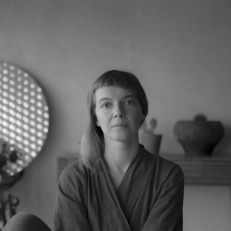
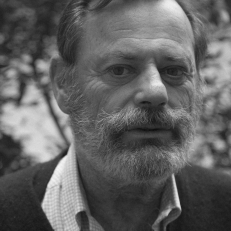
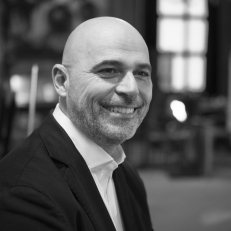
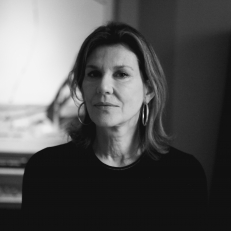
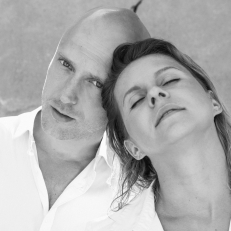
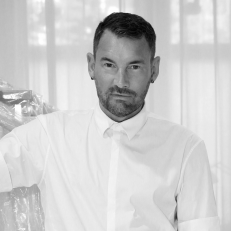
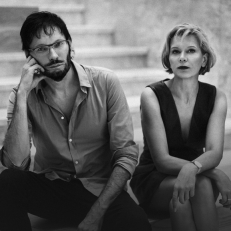
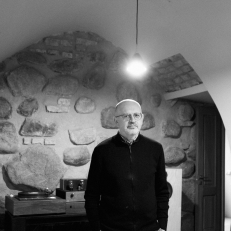
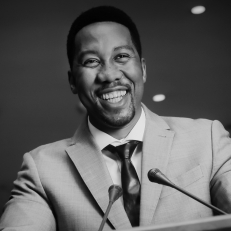
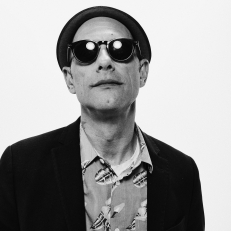


Add a comment